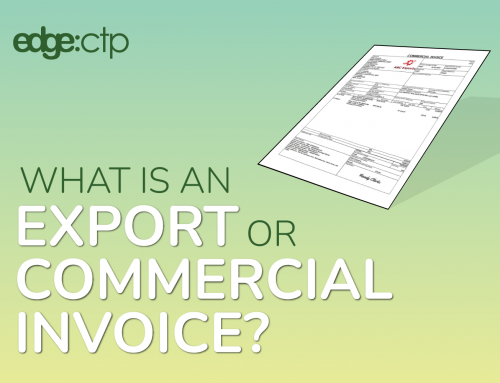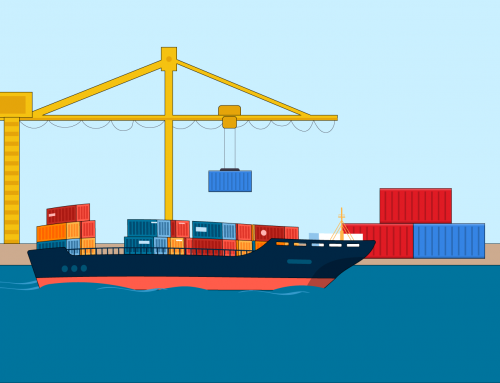I’m Geoff Runcie and at the start of 2015, I was lucky enough to be involved in a series of sessions with the International Trade expert, Murdo Beaton. We were accompanied by Abdul Mann, whose team has built a range of international trade solutions under the brand EDGE. Abdul helped to explore some of the ideas Murdo presented in his answers about managing the foreign currency risk.
Today you’ll hear one of ten questions presented to Murdo, but if you want access to the entire session or future sessions, there is a link at the end of this blog. Alternatively, feel free to drop me an email on Support or visit www.edgectp.com.
A full transcript of this session has been provided below.
Geoff:
Should I adopt the home currency of my customers?
Murdo:
The currency used, or the currency that a business would choose to use with overseas transactions depends on many issues. A lot of businesses, in actual fact, prefer to trade in Pound Sterling, which means that when they do this they are actually putting the pressure on their customer. Not just to pay their price, but to also then convert the customers own local currency into Pound Sterling, with which the customer can pay the exporter. So really when we invoice in Pound Sterling, we are actually putting what we call the foreign exchange pressure onto our customer. So we have already asked our customers for a reasonable competitive price but we are now burdening them further by asking them to carry any potential risk that may exist in terms of currency conversion, from the customer’s own local currency to our domestic home currency.
One has to consider here, whether or not there is a competitive advantage in trading in my customer’s currency. Now, in determining the competitive advantage, if there were to be one, I have to look at the currency risk that I would be adopting in actually trading, in what would be to be a foreign currency. This is what we call the foreign currency exchange risk. That is where one currency always fluctuates in value against another currency.
Now, it is possible that by invoicing in a foreign currency, by the time I get that foreign currency back home, converted into Sterling, the Sterling conversion is resulting in an amount substantially less than I expected, and that was because of the fluctuation in the foreign exchange. On the other hand, the Pound in actual fact may have done remarkably well, and if I’m invoicing in Sterling I am protecting all this. But on the other hand, if I invoice in the foreign currency again and I bring that foreign currency home, and I get more Sterling for it then in actual fact I actually win. So there are swings and roundabouts.
Abdul:
So it’s a double-edged sword.
(Scroll down to continue……)
Murdo:
There’s a double-edged sword on this one. So again I look at it on the basis of, “Is there a competitive advantage and can I manage this foreign currency risk?” That is number one in this equation. If I can put into place a procedure where I can manage the foreign currency risk then I look at my trading currency advantage. If there is a trading currency advantage and I’m able to manage the foreign currency risk then yes, I will trade in the foreign currency.
Now, there are many options available to exporters in terms of foreign exchange management. Banks offer foreign exchange contracts, fixed contracts, and options contracts. Whereby you say to a bank, on a particular date I am going to bring you X number of say US dollars, can you tell me today how many Pounds Sterling you will give me for the X amount of US Dollars? The bank will give you a rate there and then. So maybe before you even ship the goods you know exactly what you’ll be able to convert the foreign currency when you get the cash in.
Abdul:
So that’s locking into a forward rate agreement.
Murdo:
That’s locking into a forward rate agreement, and there are others. There is also what we call currency options, where you pay a premium and you don’t lock yourself into a forward rate agreement, you pay a premium. You take advantage of that type of contract if the foreign currency exchange rate goes against you. If it goes in your favor, you just dismiss it, you’ve already paid your premiums, and you’re not concerned about it. But, it is an important issue.
I know there are many, many businesses that just will not refuse to step away from the Pound Sterling, and will say “We are only going to trade in Pound Sterling.” But they should realize that they are transferring the foreign exchange risk onto their buyer, and is that something they want to do as they are already under stiff competition.
Remember, you also should be considering what you can manage. It should all be part of the research. What are my competitors doing? Are they trading in their own local currency or are they trading in the customer’s local currency? Now if my competitors are trading in my customer’s local currency then they may be at an advantage, so maybe my price will have to be that 0.00% less than my competitors if I’m going to get anywhere, because of the advantage that they may have by trading in the local currency. So, these issues all have to be taken on board. Is it important? It can be important. Again, I have seen companies using this currency issue, massively to their advantage. Using instruments called Bills of Exchange, where they actually allow the foreign buyer to almost be borrowing their money over time at interest rates substantially less than the foreign buyer would be paying to their own bank if they were borrowing it.
So this foreign exchange issue and this currency trading issue is again something the business person, wishing to go into the global market, should take on board, research it, and find out about it. How does it work? Where could I use it as a competitive advantage? Remember when we talk about these competitive advantages, they’re not an exhaustive list. We always say service is a competitive advantage. So what does that service entail? It entails everything, and foreign exchange is one of them. So, if we think that the service we provide to companies actually contains a potential competitive advantage, then it’s up to us to maximize that competitive advantage and to make sure we’re giving an advantage to our potential buyer on all fronts on the service that we provide in support of our product or service.
Abdul:
OK, I would just add from my experience as a humble FX trader many, many years ago that I wouldn’t go to my high street bank to go and get a rate.
Murdo:
(Laughs)
Abdul:
I could probably go to them to get a baseline rate and then I’d go, using the leverage of the internet, go on FXcompared.com or whatever and be able to see what FX brokers provide because they don’t charge as high a commission as your high street bank would be. One question I guess is one thing a lot of people tend to do is use reserve currencies. Like, the US Dollar is a reserve currency, in many ways. Would you trade in a third currency?
Murdo:
Only if they are readily convertible on the foreign exchange market.
Abdul:
So if you have someone say in Bolivia again and we’re in the UK, and they say we can do it but we’re not going to do it in the Bolivian currency, we’re not going to do it in UK currency but we’ll do it in US Dollars, then you’d have just the risk to US Dollars.
Murdo:
Yes, any of these major currencies, the Japanese Yen, the Euro even (if you’re not trading in Euros already) the US Dollar. Any of these regular, international, convertible currencies are fine to actually trade-in. But again, only on the basis that I’m prepared to research the foreign exchange discipline and procedures. But yes, it is quite common for countries to be trading in currencies that are comfortable for them. Your buyer will in actual fact be selling an awful lot of products to say, the Japanese. Maybe they get paid in Japanese Yen and maybe they’ve got huge reserves of Japanese Yen. So they may offer to pay you in Yen and you think “Oh heck, I can’t do that!” Please! The Yen is a hugely convertible currency. Yes, it fluctuates on the foreign exchange market, like others, and you have to be careful but that’s what we were talking about earlier when we were speaking about these disciplines you put into place.
Geoff:
I hope you enjoyed this audio. If you’d like more information on international trade, go to Our Blog.





